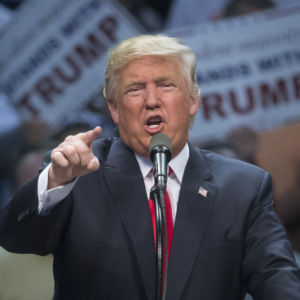The Islamophobic and anti-Muslim sentiments expressed only hours after the unparalleled homophobic violence in Orlando early Sunday demonstrate how — despite their differences — the three have deep roots in America.
Like many Americans, I grew up afraid of both gays and Muslims. As a boy in the late 1960s and 1970s, I knew there were few more destructive suspicions that could be voiced about me than those connoted by the label “gay.” While the term might be flung at someone by friends as a joke, it could be a damning adjective if antagonistically and permanently attached to one’s name.
Proximity to boys or men who actually were gay instilled fear because of “guilt” by association. Sadly, these fears meant that the presence of gays in my society cultivated in me anxiety that any slips on my part into seemingly non-masculine behavior might lead to marginalization. Girls and women I knew struggled with their own homophobic fears. Of course, those who identified as queer often felt they needed to avoid recognition or risk ostracization.
Meanwhile — in an era that extended through two Israeli-Arab wars, the OPEC oil embargo and the Iranian Revolution — Middle Eastern politics reinforced longstanding American antipathies toward Arabs and Muslims.
I grew up with the impression that all Muslims were Arab, violent and non-American. Of what others did one hear? Not enough Muslim families then lived in my New Jersey suburb to raise awareness of their presence, so the fears of Islam as a religion (supposedly radical, warlike and wrong) and Muslims as a people (seemingly brown-complexioned, contentious and foreign) reflected an alien threat to the social and economic order of normatively white, Christian America.
These twin social anxieties — Islamophobia and anti-Muslim sentiment — represent different yet related prejudices that have emerged in various forms throughout American history.
The violence last weekend leaves questions about Omar Mateen’s motivations that may never be understood in detail. While he claimed allegiance to the so-called Islamic State, his involvement with and inspiration by the group remains unclear.
Maybe more significantly, although public acceptance of queer Americans has made significant gains, especially in the last decade, I suspect that many boys and men — gay or not — still fear the label that for too many continues to serve a taxonomy of suspicion regarding the fullness of someone’s masculinity.
Raised in the United States, perhaps Mateen’s homophobia stemmed, at least in part, from the same fears from which mine did. However, it seems significant that his father reported that Mateen’s outrage was piqued recently when the killer’s 3-year-old son saw two men kissing. In addition to whatever childhood antipathies with which he likely grew up, his homophobic-fueled fury seemingly also fed on fears that public gay life represented a threat to his family, if not to society in general: attitudes still expressed by too many Americans.
It is here that the homophobia still sadly endemic in America intersects with an Islamophobia that also has a long history. Donald Trump lost no time connecting Mateen’s horrible violence to his demand that all Muslim immigration into the United States temporarily cease. His speeches repeat tired stereotypes debunked too long ago to be accidental.
The Republican presidential nominee consistently uses “Muslim” and “Middle Eastern” as interchangeable terms, even though the overwhelming majority of Muslims live outside that region, which is also populated by sizable Christian and Jewish populations.
And Trump loudly insinuates that Muslims should be suspect not only because, as immigrants from conflict zones, they might bring violence with them. In his statement about Muslim migrants on Sunday, he claimed, “And we will have no way to screen them, pay for them, or prevent the second generation from radicalizing.”
An uncritical audience would likely ask why — if the children of migrants might radicalize — might not the third, fourth or 10th generation do so? Are not nearly all Muslims therefore suspect?
Of course, Trump’s rhetoric on violence does not equate with the physical violence exercised by Mateen. However, his and other politically motivated speech is likely not disconnected from physical and other forms of violence, as suggested by reports on recent hate crime.
Since the latest presidential campaign started — which coincided with the militant attacks in Paris and San Bernadino — Muslim reports of hate crimes have soared.
Meanwhile, since 2007, when some Republican candidates (and at least one Democrat) exacerbated fears of Muslim immigration, mosques and “shariazation” to galvanize voters, multiple polls have showed antagonism toward Islam and Muslims growing to levels surpassing those after the attacks of September 11.
Whatever other sources may contribute to them, both Mateen’s homophobia and Trump’s Islamophobia have plentiful roots in American soil, nurtured by old antipathies and fears that are both personal and social. Having struggled to overcome my own fears and the prejudices they instilled, I know that their individual problems are our social problems until more Americans recognize our culturally instilled fears and acknowledge how they feed the politics of anger.

